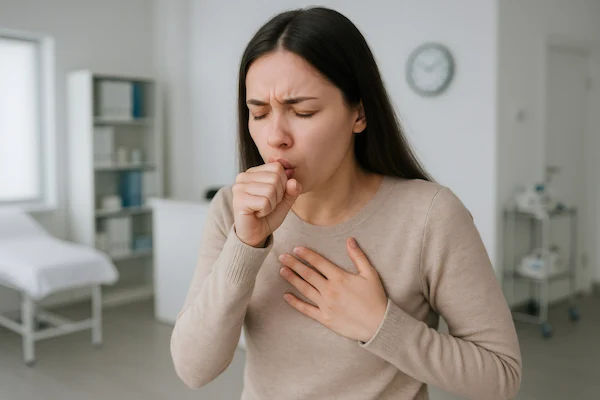Substance Abuse and Addiction in Men: A Comprehensive Guide to Signs, Causes, and Recovery
Explore the unique challenges of substance abuse and addiction in men. Learn about signs, root causes, treatment options, and recovery strategies tailored for men.

Written by Dr. J T Hema Pratima
Reviewed by Dr. Shaik Abdul Kalam MD (Physician)
Last updated on 13th Jan, 2026

Introduction
Substance abuse and addiction represent a profound health crisis, impacting millions of lives globally. While addiction does not discriminate, its expression, causes, and pathways to recovery often have a distinct gender dimension. Men are statistically more likely to abuse almost all types of illicit drugs and alcohol, and they experience higher rates of alcohol-related hospitalisations and deaths. This guide delves deep into the unique challenges of substance abuse and addiction in men, moving beyond the stigma to explore the signs, root causes, and most effective treatment options. We will equip you with the knowledge to recognise the problem, understand the underlying issues, and take the first courageous step toward healing and sustainable recovery. Whether you are seeking help for yourself or a loved one, understanding these gender-specific nuances is the first step on the path to reclaiming a healthy, fulfilling life.
What is Substance Use Disorder? Defining the Problem
Substance Use Disorder (SUD) is a medical condition characterised by the uncontrolled use of a substance despite harmful consequences. It's a complex disease that affects brain function and behaviour, making it difficult for individuals to control their use of legal or illegal drugs or medication.
The Difference Between Substance Abuse and Addiction
While often used interchangeably, there's a subtle distinction. Substance abuse refers to a pattern of using a substance that leads to significant impairment or distress, such as failing to meet work obligations or using in dangerous situations. Addiction, often synonymous with a severe SUD, involves a compulsive, chronic physiological and psychological need for a substance. Key elements include tolerance (needing more to achieve the same effect), withdrawal symptoms upon stopping, and continued use despite clear physical, mental, or social harm.
Why Men Are at a Higher Risk for Certain Addictions
Statistics consistently show that men are more likely than women to use illicit drugs, have higher rates of dependence, and are more prone to emergency department visits for overdose. This disparity is linked to a combination of biological factors, such as how men's bodies process substances, and sociocultural factors, including greater peer pressure and societal norms that often encourage risky behaviour among men while discouraging emotional expression and help-seeking.
Recognising the Signs: How Substance Abuse Manifests in Men
Identifying substance abuse can be challenging, as individuals often go to great lengths to hide their behaviour. However, there are common clusters of signs to watch for.
Behavioural and Social Signs of Addiction in Men
• Neglecting Responsibilities: Performance at work or school declines sharply. Household chores and family obligations are ignored.
• Secretive Behaviour: Being unusually secretive, lying about whereabouts or activities, and hiding substances.
• Financial Issues: Unexplained need for money, borrowing or stealing money, or selling possessions to fund their habit.
• Social Withdrawal: Pulling away from family and old friends, and instead spending time with a new social group centred around substance use.
• Risky Behaviour: Driving under the influence or taking dangerous risks while using.
Physical Symptoms and Health Warning Signs
• Changes in Appearance: Sudden weight loss or gain, poor hygiene, and lack of concern for physical appearance.
• Health Issues: Persistent cough, nosebleeds (often linked to snorted drugs), and unexplained bruises or marks on the body.
• Sleep and Appetite Changes: Insomnia or hypersomnia, and significant changes in appetite.
• Withdrawal Symptoms: Experiencing nausea, sweating, shaking, or anxiety when without the substance.
Root Causes: Why Men Turn to Substances
Understanding the "why" is crucial for effective treatment and empathy. For men, the reasons are often multifaceted.
Societal Pressure and the "Strong Man" Stereotype
Many men are socialised to be stoic, self-reliant, and to suppress emotions. This can make it incredibly difficult to process feelings of stress, anxiety, or sadness in a healthy way. Substances can become a maladaptive coping mechanism—a way to numb emotional pain or escape from pressure without appearing "weak" or asking for help.Consult a Psychiatrist for Personalised Advice
Co-occurring Disorders: The Link Between Mental Health and Addiction
A vast number of men with substance abuse issues also struggle with a co-occurring mental health disorder, such as depression, anxiety, PTSD, or ADHD. This is known as a dual diagnosis. Often, men may unknowingly be self-medicating to alleviate the symptoms of an untreated mental illness. For instance, a man with social anxiety might use alcohol to feel more comfortable at parties, leading to dependence.
The Path to Healing: Effective Treatment Options for Men
Recovery is not only possible; it's achievable with the right support. Effective male addiction treatment addresses both the physical dependence and the psychological underpinnings of the disease.
The First Step: Detoxification and Medical Management
Detox is the process of allowing the body to safely clear itself of substances while managing the acute symptoms of withdrawal. This should ideally be done under medical supervision, especially for alcohol, benzodiazepines, and opioids, as withdrawal can be dangerous. If you or a loved one is considering stopping, consult a doctor online with Apollo24|7 for a safe withdrawal plan. They can provide guidance and, if necessary, medication to ease the process.
Behavioural Therapies: CBT, DBT, and Motivational Interviewing
Therapy is the cornerstone of addiction treatment.
• Cognitive Behavioural Therapy (CBT) helps individuals identify and change destructive thought patterns that lead to substance use.
• Dialectical Behaviour Therapy (DBT) teaches skills for regulating emotions, tolerating distress, and improving relationships.
• Motivational Interviewing is a counselling method that helps resolve ambivalence and find the internal motivation to change.
These therapies provide men with the practical tools they need to cope with life's challenges without resorting to substances, directly countering the reasons behind why men abuse substances.
How to Help: Supporting a Man with an Addiction
Watching a loved one struggle is painful. Your support can be a critical factor in their recovery journey.
Approaching the Conversation with Empathy
Choose a time when you are both calm and sober. Use "I" statements ("I am worried about you because I've noticed you've been withdrawing from us") instead of "You" accusations ("You are an addict and you need to stop"). Express concern, love, and support, and make it clear you are on their side. The goal is to open a dialogue, not to stage a confrontation.
Life in Recovery: Maintaining Sobriety and Preventing Relapse
Recovery is an ongoing process. Relapse prevention is a key skill, focusing on building a healthy, fulfilling life that minimises the desire to use.
Building a Healthy Lifestyle and New Routines
Replace old habits with new, positive ones. Regular exercise, a healthy diet, adequate sleep, and engaging in hobbies can significantly improve mental well-being and reduce cravings. Structure provides stability, which is essential in early recovery.
Identifying and Managing Triggers
A trigger is anything that sparks a craving. Common triggers for men include stress from work, certain social environments, relationship conflicts, or even specific emotions like anger or boredom. Through therapy, men learn to recognise their personal triggers and develop healthy strategies to navigate them without using substances.
Conclusion: You Are Not Alone - Hope and Help Are Available
The journey of substance abuse and addiction in men is fraught with challenges, deeply intertwined with societal expectations and personal struggle. Yet, it is crucial to remember that addiction is a treatable medical condition, not a moral failing or a lack of willpower. Recognising the unique signs—from behavioural changes and physical decline to the psychological toll—is the first act of courage. Understanding the root causes, from the pressure to conform to the "strong man" ideal to the presence of co-occurring mental health disorders, allows for a more compassionate and effective approach to healing.
Recovery is not a solitary path. It is paved with professional support through male addiction treatment programmes, evidence-based therapy, the solidarity of support groups, and the unwavering love of family and friends. It involves rebuilding a life with healthy routines, recognising triggers, and developing new coping mechanisms. If you see yourself or someone you care about in this guide, take that insight and turn it into action. Reach out. Ask for help. If you're ready to take the next step, you can consult a doctor online with Apollo24|7 to discuss options confidentially and without judgement. Hope is not lost; it is waiting on the other side of the decision to seek help.Consult a Psychiatrist for Personalised Advice
Consult a Psychiatrist for Personalised Advice

Dr. Abhijit Chakraborty
Psychiatrist
8 Years • MBBS, DPM, MD Psychiatry
Kolkata
BIENETRE CLINIC, Kolkata

Dr. Ankit Halder
Psychiatrist
7 Years • MBBS, MD (Psychiatry)
Kolkata
MCR SUPER SPECIALITY POLY CLINIC & PATHOLOGY, Kolkata

Dr. Aditya Nair
Psychiatrist
5 Years • MBBS, MD (Psychiatry)
Bansdroni
Siddhita Healthcare., Bansdroni

Dr. Pratik Kumar
Psychiatrist
10 Years • MBBS,DNB-PSYCHIATRY
North West Delhi
DELHI GLOBAL MIND CLINIC, North West Delhi
(75+ Patients)

Dr. Ankit Halder
Psychiatrist
7 Years • MBBS,MD(PSYCHIATRY)
Kolkata
Serenity Mindcare (A Neuropsychiatry Clinic), Kolkata
Consult a Psychiatrist for Personalised Advice

Dr. Abhijit Chakraborty
Psychiatrist
8 Years • MBBS, DPM, MD Psychiatry
Kolkata
BIENETRE CLINIC, Kolkata

Dr. Ankit Halder
Psychiatrist
7 Years • MBBS, MD (Psychiatry)
Kolkata
MCR SUPER SPECIALITY POLY CLINIC & PATHOLOGY, Kolkata

Dr. Aditya Nair
Psychiatrist
5 Years • MBBS, MD (Psychiatry)
Bansdroni
Siddhita Healthcare., Bansdroni

Dr. Pratik Kumar
Psychiatrist
10 Years • MBBS,DNB-PSYCHIATRY
North West Delhi
DELHI GLOBAL MIND CLINIC, North West Delhi
(75+ Patients)

Dr. Ankit Halder
Psychiatrist
7 Years • MBBS,MD(PSYCHIATRY)
Kolkata
Serenity Mindcare (A Neuropsychiatry Clinic), Kolkata
More articles from General Medical Consultation
Frequently Asked Questions
1. What are the first signs of alcoholism in a man?
Early signs often include an increased tolerance (needing more drinks to feel the same effect), drinking alone or in secret, making excuses for drinking, and neglecting responsibilities at work or home due to hangovers or drinking sessions.
2. How is addiction treatment different for men?
Men's rehab programmes often focus on creating a community of peer support with other men, which can reduce feelings of shame and isolation. Therapy may also specifically address male socialisation issues, such as difficulty expressing emotion and the pressure to be the primary provider.
3. Can substance abuse affect male fertility and testosterone levels?
Yes, significantly. Chronic use of opioids, alcohol, anabolic steroids, and marijuana can disrupt the hormonal system, leading to reduced testosterone production, erectile dysfunction, lowered sperm count, and decreased fertility.
4. What should I do if my husband denies he has a drug addiction problem?
Denial is a common part of addiction. Continue to express your concern with love and compassion without enabling the behaviour. Avoid arguing while they are using. Consider speaking with an addiction specialist or therapist yourself for guidance on how to best stage an intervention or encourage them to seek help.
5. Are there medications that can help with addiction recovery?
Yes, Medication-Assisted Treatment (MAT) is highly effective for certain addictions, particularly opioids and alcohol. Medications like buprenorphine, naltrexone, and acamprosate can help reduce cravings and withdrawal symptoms, allowing the individual to focus on their therapy and recovery. A doctor can determine if this is an appropriate option.




